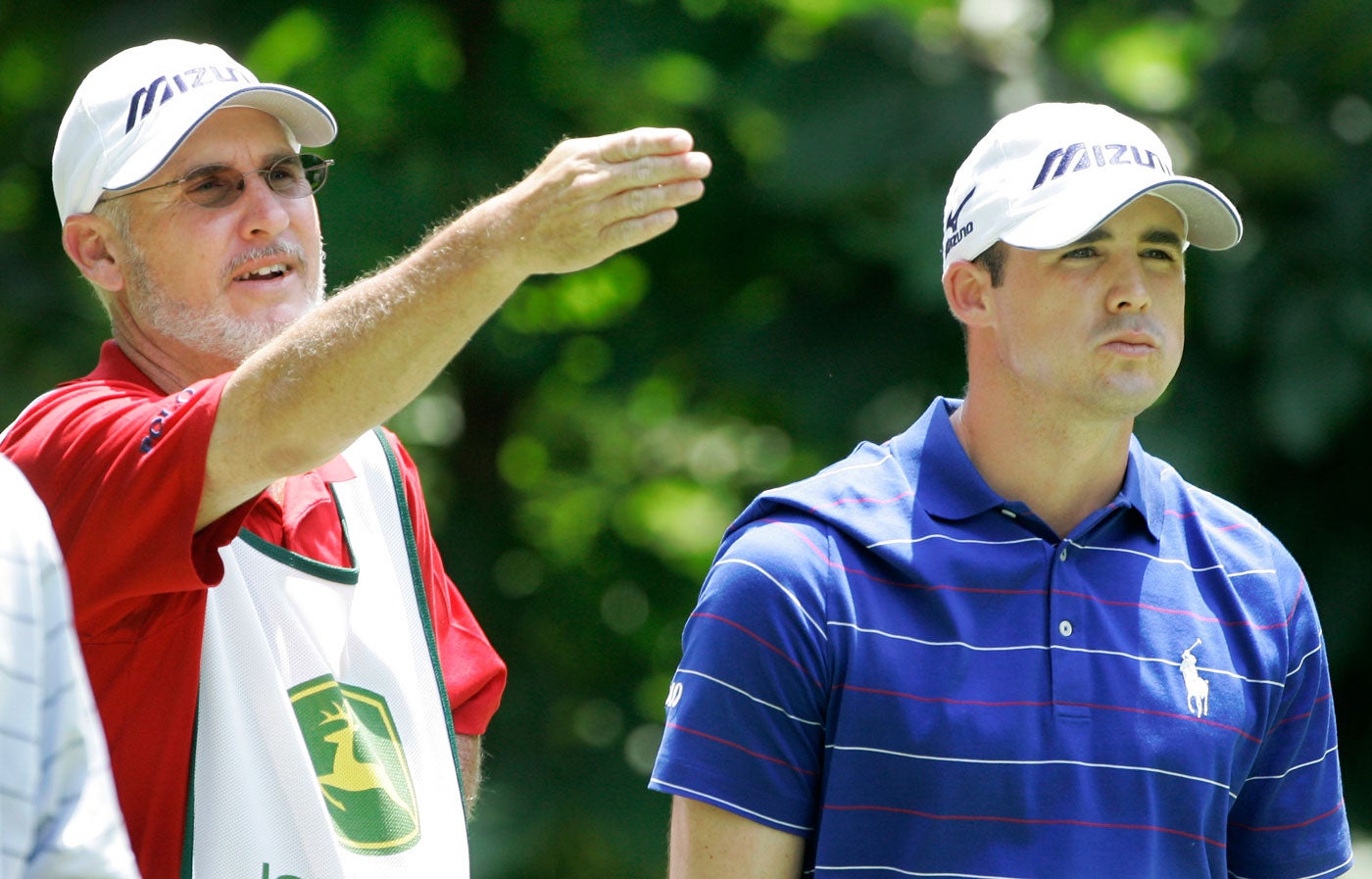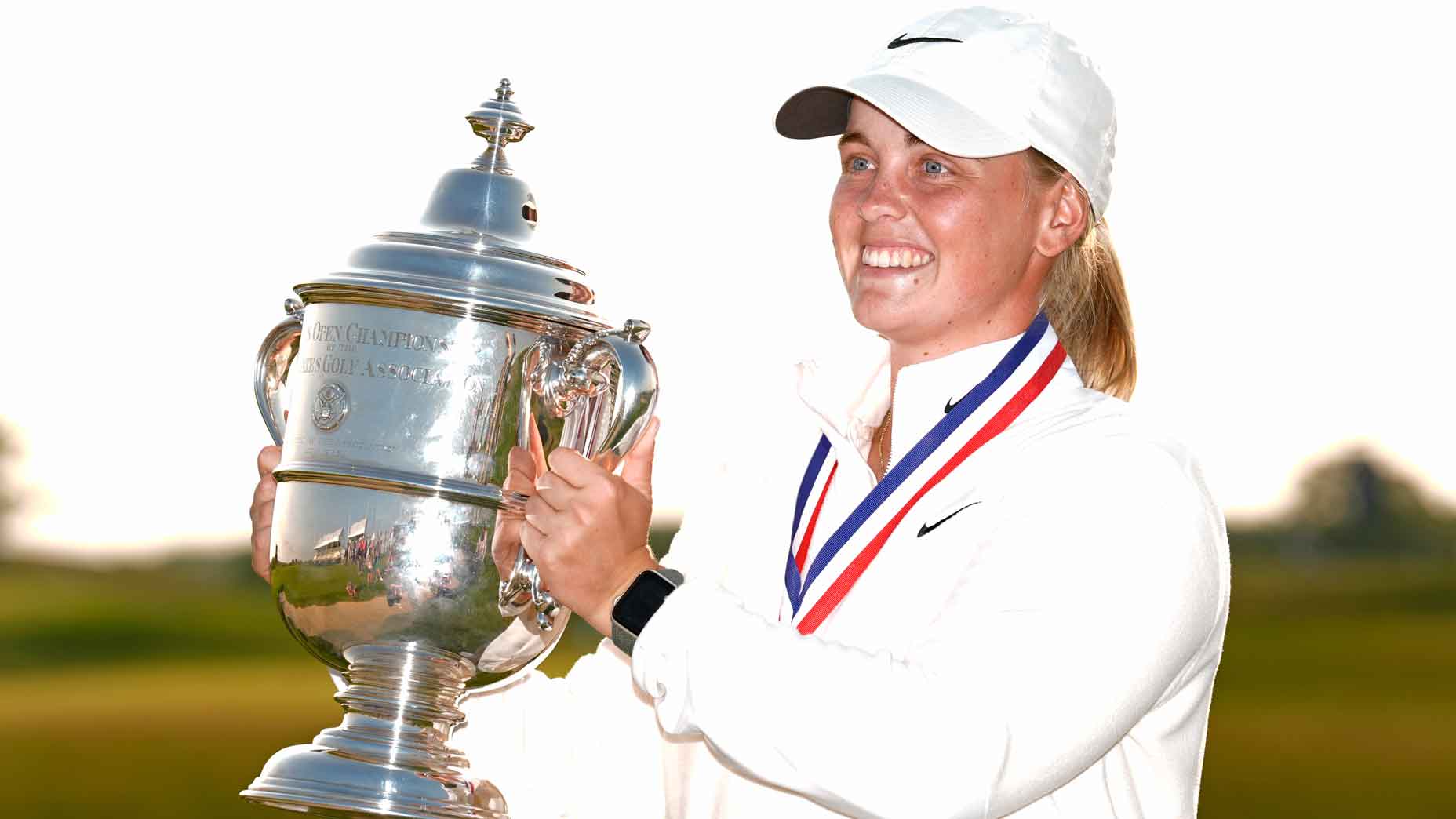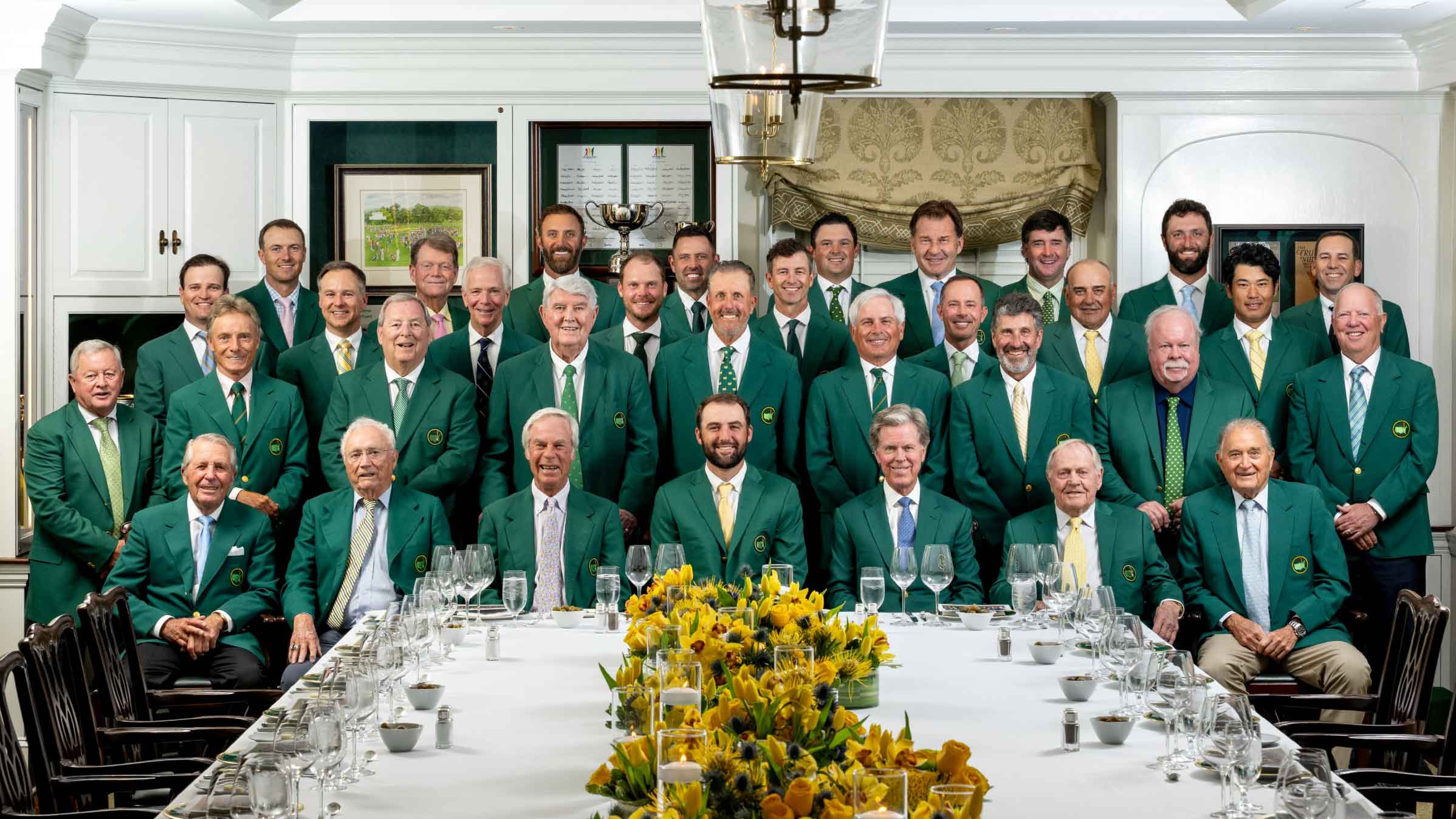Caddies are often overlooked in golf. That is about to change.
On Tuesday Mike Hicks, who has caddied for Payne Stewart and Greg Norman, and 80 other professional caddies filed a multi-million dollar federal lawsuit against the PGA Tour. They argue that the Tour unlawfully compels caddies to wear logos and other insignia of corporate sponsors on bibs. The tour also allegedly prevents caddies from sharing in tens of millions of dollars in annual advertising revenue. Put bluntly, the caddies contend that the PGA forces them to become unpaid human billboards for the advertisement of companies sponsoring the Tour.
The caddies have filed their lawsuit in the U.S. District Court for the Northern District of California—the same court where Ed O’Bannon v. NCAA was tried and where Martin Jenkins v. NCAA and Cung Le v. UFC are in litigation. Like O’Bannon and other athletes who are using law to address alleged exploitation in sports, the caddies raise claims under antitrust law, intellectual property law and contract law.
The caddies have petitioned the court to certify Hicks v. PGA Tour as a class action on behalf of all caddies residing in the United States who, without pay, wear or have worn bibs bearing the logos of the Tour’s sponsors during tournaments. This proposed class would include about 1,000 caddies and potentially threaten the PGA Tour with hundreds of millions of dollars in damages.
Understanding the employment of a caddie during a PGA tournament and the role of the bib
From the vantage point of a fan, caddies often blend into the background of PGA tournaments. Television cameras understandably focus on the stars of the show: the golfers. Broadcasters and journalists similarly devote most of their commentary to describing the golfers, as well as sharing anecdotes about golfers’ backgrounds, personality traits, families, hobbies—you name it. To these golfers’ right or left stand their caddies who receive much less fanfare and at times seem inconsequential. The caddies, however, are visible on-screen, an important point in Hicks v. PGA Tour.
From the vantage point of a golfer, caddies are instrumental. Golfers rely on caddies for their expertise on clubs, swing techniques and course topography, among other crucial aspects of competitive golf. Caddies are also famously known for lending emotional support and counsel. It would be reasonable to conclude that caddies enhance the overall quality and accompanying marketability of PGA tournaments. Caddies do so by improving the play of their respective golfers.
While caddies play a crucial role in PGA tournaments, their relationship to those tournaments is indirect. Golfers, rather than the Tour, employ caddies. Caddies nonetheless must adhere to Tour regulations as a contractual condition of participating in tournaments. In many respects these regulations are permissive. Most significantly, caddies can wear sponsored logos on their clothing. This means that caddies can freely sign sponsorship deals with apparel companies, like New Balance and Nike, and wear those companies’ clothing in front of TV cameras.
On the other hand, caddies are expected to wear bibs, which bear logos of companies paying the PGA Tour but not paying the caddies. These bibs are seen during television broadcasts of tournaments and are captured in photographs used in magazines and on websites. These bibs lie at the heart of Hicks v. PGA Tour. The legal question is whether caddies should be paid for wearing them.
Caddies suing the PGA Tour assign a considerable value to these bibs. “The bib,” the caddies insist, “provides the most valuable marketing medium between commercials during tournament broadcasts …[with] the annual value of the bib exceeds $50 million.” While there is no specific Tour rule that caddies “must” wear the bibs, caddies are thought to be contractually required to wear them as part of an agreed-upon “uniform.” Hicks and the other caddies in the lawsuit also contend the Tour compels the wearing of bibs through coercion and retribution. They charge the Tour threatens caddies with exclusion from tournaments if they won’t wear the bibs, encourages golfers to fire caddies who refuse to wear the bibs and admonishes caddies against receiving endorsement money from sponsors that are competition with bibs’ sponsors.
The caddies’ lead attorney, Eugene Egdorf, believes Hicks v. PGA Tour is about treating the caddies fairly and recognizing the value they bring to the Tour. “Over the years,” Egdorf tells Golf.com, “the PGA Tour and its sponsors have received literally hundreds of millions of dollars in value from endorsements from the bibs the caddies are forced to wear without any compensation whatsoever.” Egdorf, who is the Managing Attorney at the Lanier Law Firm (where he’s in charge of the firm’s Commercial Litigation and Sports Law Practice Groups) adds, “The PGA Tour imposes all sorts of restrictions on caddies for its benefit, yet refuses to provide the most basic of benefits. Just like the athletes that sued NCAA in O’Bannon v. NCAA, Hart v. NCAA and Keller v. NCAA, the caddies want their fair share of the value they provide.”
The caddies’ core legal arguments
The caddies plead several causes of action that should provide the Tour’s lawyers with many billable hours in the months ahead. Antitrust law is a key source of law cited by the caddies and is especially threatening given that antitrust damages are normally trebled (multiplied by three) if the plaintiffs prevail.
The caddies contend that the bib policy is an unlawful restraint of trade under the Sherman Antitrust Act. This policy, according to the caddies, is anticompetitive since it prevents caddies from negotiating their own sponsorship contracts for bibs. As an alleged result, caddies are denied earnings they would otherwise obtain. Also, the marketplace for bib sponsorships is less competitive since only the Tour—and not caddies—can negotiate bid sponsorship contracts. At least in theory, this arrangement raises the price sponsors must pay for bib endorsements since the only seller is the Tour. Any associated earnings from this practice then go to the PGA Tour. The caddies also contend that the Tour has monopoly control over employment opportunities for caddies in the U.S. and has conspired with local tournament organizers to force caddies to wear bibs. These local tournament organizers, according to the caddies, selfishly stand to profit by enforcing the Tour’s rules.
In addition to antitrust arguments, the caddies assert intellectual property claims. Specifically, they contend that the Tour misappropriates the images and likenesses of caddies for marketing purposes without the caddies’ consent. The caddies insist they never permitted the Tour to use their likenesses and images for commercial purposes, and never agreed to marketing companies on bibs to potential consumers. The caddies, moreover, charge they receive less in sponsorship agreements for their sponsorships since the prominence of bibs’ size and colors covers or overshadows other pieces of clothing.
The caddies raise yet other claims, including those for breach of contract (the Tour allegedly breached the caddies registration agreement by barring caddies from wearing clothing of sponsors), violation of the Lanham Act (the Tour allegedly causes consumers to be confused into thinking caddies endorse the companies sponsoring the bibs) and interference between caddies and their own sponsors.
Likely defenses by the PGA Tour
In the coming weeks, the PGA Tour will answer the caddies’ complaint. The Tour’s answer and subsequent legal filings will surely deny much of what the plaintiffs contend and also repudiate the caddies’ legal theories.
For instance, the Tour might object to the caddies’ assertion that caddies are obligated to wear bibs. The Tour’s registration agreement with caddies noticeably does not refer to a requirement that caddies wear bibs. Instead, caddies are more generically required to adhere to a “uniform,” a term the caddies contend includes bibs. The Tour might have a very different reading of this term. This seems particularly the case given that “uniform” is defined by the Tour to include such specific features as “Khaki-style pants, which touch the top of the shoe, or solid-colored, knee-length, tailored shorts and a collared shirt,” and “smooth rubber-sole shoes,” yet this definition fails to mention bibs.
The Tour could also contend that no caddie has refused to wear a bib. If this is true, it could suggest that the caddies’ harm is imaginary: if caddies are so disadvantaged by bibs, why hasn’t one refused to wear a bib? This defense might not hold up well. The plaintiffs are prepared to cite the experience of James Edmondson, who while caddying for Ryan Palmer at the Honda Classic last year reportedly removed his bib at the end the round and didn’t wear his bib during a one-hole playoff. Although he faced no punishment because of the unique playoff circumstance, Edmondson still had to explain his decision to Tour officials. Nonetheless the Tour would stress that caddies have behaved as if bibs are acceptable to them.
Along those lines, Tour will highlight that caddies contractually assent to follow the rules. Caddies are not obligated to participate in Tour competitions and their choice to do so is made freely. Anticipating this type of defense, the caddies frame the Tour as a monopoly for the highest level of professional male golf. The Tour will need to establish how there is competition for the services of caddies that go beyond Tour-sponsored events.
The Tour is also poised to argue that bibs improve the presentation and marketability of tournaments. This is a potentially important point in antitrust analysis, which often balances the “pro competitive” virtues of a restraint (here the restraint is an alleged Tour rule that caddies wear bibs) and its “anti-competitive” harms. While imposing bibs on caddies might harm those caddies, the Tour could portray tournaments are more profitable due to the bib policy and thus the overall tournament product is improved. Perhaps the Tour will also express that caddies could face unintended consequences if they succeed. After all, if caddies extract too much revenue from the Tour, the Tour might need to promulgate more exclusive conditions to become a caddie. New conditions might cause some caddies to lose their line of work.
One challenge for the Tour in raising these types of defenses would be the caddies’ contention that there are less-restrictive means of standardizing the appearance of caddies than forcing them to wear bibs. In antitrust law, the possibility of less-restrictive means for the defendant to achieve the same ends is often a strong argument for the plaintiffs.
Next steps
This is a transformative era for caddies. They have become more organized and vocal through trade associations like the Association of Professional Tour Cadies (formed in 2013) and the United States Caddie Association (formed in 2014). Now many of them have filed a potentially game-changing federal lawsuit. If the caddies succeed in their lawsuit, a court will enjoin the PGA Tour from requiring caddies to use bibs and will compel the Tour to pay many millions in damages.
But keep in mind that antitrust and intellectual property litigation often takes years to play out and that plaintiffs often fail in these cases. The Tour obviously has deep financial resources to wage a strong legal defense and as explained above, the Tour might raise powerful defenses. The filing of a lawsuit is only the first step in a long process where the defendant—here the Tour—has multiple moments to defeat the lawsuit.
Still, Hicks v. PGA Tour does not necessarily have to prevail in order to lead to changes. If the caddies’ lawsuit advances past a motion to dismiss, the caddies would be in a position to compel “pretrial discovery.” Attorneys for the caddies could then demand sensitive documents from the Tour and depose Tour officials under oath. At that point the Tour might be interested in settling the lawsuit rather than participating in pretrial discovery. A settlement would likely lead to changes in the bib policy and perhaps compensation to caddies. It could also encourage other groups, such as female caddies, to consider filing similar litigation.
Big changes could be ahead in the world of caddies, whether or not the world of golf welcomes them.
Michael McCann is a Massachusetts attorney and the founding director of the Sports and Entertainment Law Institute at the University of New Hampshire School of Law. He is also the distinguished visiting Hall of Fame Professor of Law at Mississippi College School of Law.
The complete Hicks vs. PGA Tour lawsuit:
For more news that golfers everywhere are talking about, follow @golf_com on Twitter, like us on Facebook, and subscribe to our YouTube video channel.






